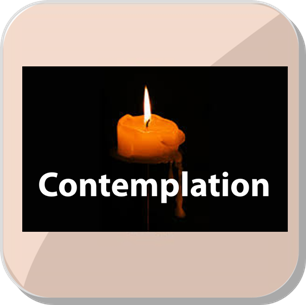|
by John-Peter Gernaat In December the Gospel Study considered John 9 into John 10 with the sixth sign and the third and fourth ‘I am’ statements.
The sixth sign may be related to the Sacrament of Marriage (see in previous reports how the signs have a relationship to the sacraments). The sign is the healing of the man born blind and raises the question as to who sinned that he was born with this condition. The sign considers how to manage relationships. In this sign there is a grace that intervenes and takes matters beyond nature. We bring preconditions into our earthly life at birth. But we must move for these preconditions to move forward. In this the Divine can be made manifest in us. In meeting the Christ-in-me in our lives and working with this power something can develop. We enter life blind to our earthly destiny. Through a relationship with Christ, we can find our destiny and overcome the knots of karma. In our life in the daytime, we can work. When we sleep and are in the world of spirit, we can only reflect on what the day brought. Therefore, it is in the light of day that we find our relationship with the Divine through the relationships of life. The mark that we are aiming to hit is the mark of love and when we miss the mark of love, we refer to this as sin. Our destiny is to transform the cosmos of wisdom into a cosmos of love. The ‘I am’ statements of Christ are expressions of the Human Being, with the indwelling Christ, who can represent the Divine. “I am the door” is an understanding that the astral body is connected with the soul constitution. The soul lives in the astral body. It is in the soul that the door can exist. The door is the threshold from here to there. Across this threshold the sense impressions of the material world meet the intuition of the spirit. “I am the good shepherd” is a reflection of the constitution of the ‘I’. The good shepherd has the ability to manage the soul constitution consisting of the sentient soul, the mind (or social) soul and the consciousness soul. We, as humans, are the shepherds. We are not the sheep. We must take leadership of ourselves. This passage (John 10) is closely connected with the constellation of Aries which was understood by ancient civilisations as the constellation of the Hired Man. It represented the additional labour needed at the time of lambing and of harvest. But it was realised that the hireling does not care for the sheep in the way that the shepherd does, and the imagination of Aries changed in the ancient Sumerian world to the constellation of the Good Shepherd who cares for the sheep throughout the year. It then became understood as the constellation of the ram, and we know the connotation of the ram from the story of Abraham and Isaac. The ram caught in the bush is sacrificed in the place of Isaac. The constellation of the ram now becomes for us the constellation of the lamb. The lamb becomes associated with the Passover when it is the blood of the lamb that is smeared on the door jamb. In the Book of Revelation the lamb has become the newly-born lamb. The words that Christ spoke were connected to the mighty constellations of the zodiac for those who heard him. Christ was connecting himself to mighty spiritual images and for this, some thought he was mad. But Christ created a new relation to the constellations. What he was saying was understood as there being a god among the people. Only Jesus with the Christ in him could make this claim that the Divine now lives in the human being. The I-organisation is a gift from Christ that each one of us can now take hold of through the Christ-in-me. Each one of us can now open and close the door through the indwelling Good Shepherd. If we are not the Good Shepherd, we become the Hired Man who flees when things turn bad. It is only the Doorkeeper who can truly and freely open and close the door. Christ came on earth for all humanity and once we listen, we can become one humanity with one Shepherd, the Christ-in-me. Religious practices only matter if they lead to us our true humanity.
0 Comments
Leave a Reply. |
Article Archives
July 2024
2023 - January to December
2022 - January to December 2021 - January to December 2020 - January to December 2019 - January to December 2018 - January to December 2017 - January to December 2016 - January to December 2015 - January to December 2014 - November & December 2013 - July to December 2013 - January to June 2012 - April to December Articles (prefaced by month number)
All
|




 RSS Feed
RSS Feed